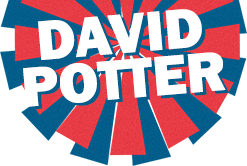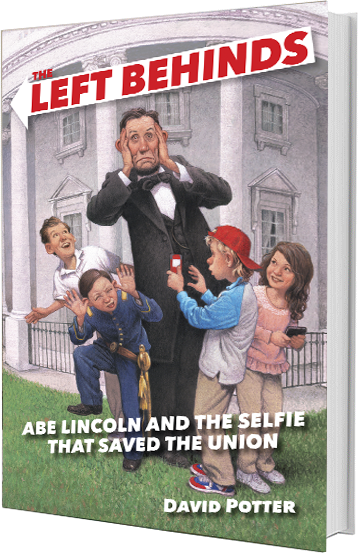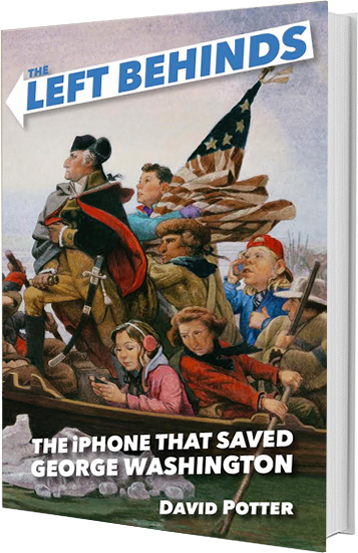So: the excise tax is duly passed in 1791, in exact accordance with the rules laid down in the brand-spanking new US Constitution. As each state has elected representatives in both houses of Congress, no one can claim that there was taxation without representation. End of story, right?
Wrong.
Perhaps it would help to look at this from two distinct points of view. Each point of view has, not surprisingly, pretty much continued to this day – all you need do is turn on your favorite cable news channel and you will see what I mean.
First, let’s look at this from the settlers POV. Western Pennsylvania at this time in our nation’s history was a region unto itself. The folks who settled there were not wealthy – far from it. The Allegheny Mountains lay between this area and Philadelphia, which made travel and communication slow and difficult; to the west, Native American country. These Native Americans – the Iroquois, the Shawnee, and the Miami tribes, among others – were not mere passive bystanders. There were continual raids, slaughters, and atrocities committed on both sides as part of a bitter, brutal fight for control of the land. The tribes were trying to regain what they had lost; the settlers were trying to hold on to their homesteads.
The settlers felt themselves besieged, with no help whatsoever from the newly established federal government. Even without the constant threats from the tribes, extreme weather, disease, lack of an infrastructure, and isolation from each other made farming and land cultivation tenuous at best. Eking out a living on the far edge of poverty was the norm.
And to trade with each other, whiskey, made in small, dilapidated distilleries, was sometimes used as a medium of exchange, and not only as liquid solace for long winter nights.
So when they got word that the remote, unhelpful, and highhanded new Federal Government – as they saw it – wanted to tax their whiskey production, most vowed non-compliance.
To take from the poorest of the poor and give to…whom? For what? Certainly not to develop roads, or protection from the tribes, or anything whatsoever in the way of helping out Western Pennsylvanians. Furthermore, the law required accurate accounting and record-keeping, in order to determine the precise taxation rate. To get any of this from barely literate deep country moonshiners was not likely in any circumstance.
The excise tax was ignored and went unpaid. As I may have mentioned once or twice, people really don’t like to pay taxes, and, unless forced to, won’t.
The argument continued throughout 1791, 1792, and 1793. Debates, meetings, correspondence committees, newspaper editorials – the media tools of the day -raged back and forth over the refusal of the Western Pennsylvanians to pay what the federal government considered their fair share.
Now, from the point of view of the men who were actually running the new government, and who were looking at the long-term future and viability of the United States, random acts of non-compliance with any federal law was not an option. These men had thought long and hard prior to, during, and after the Revolution about the nature of government, freedom, responsibility, the “public good,” and had themselves sacrificed a considerable part of their time, energy, and wealth to the establishment of a new nation. And in Treasury Secretary Alexander Hamilton, the tax resistors more than met their match. As I’ve said, Hamilton, along with President Washington, was intent on establishing a strong, legitimate central government that would take its rightful place among the nations of the world, and which therefore needed to pay down its Revolutionary War debt. Second, he was a bookkeeping wizard, and could not accept any business person’s contention that the record-keeping requirements were too difficult or burdensome. Hamilton advised the local distillers to take “the trouble of setting down in the evening the work of the day in a book.” Although Hamilton did try to make the law somewhat more palatable in these years, all efforts met with same reaction: resistance and non-compliance. What, then, is a central government to do, particularly a new one? Could it function, now and in the future, if this group or that decided not to pay a tax or follow a law?
By 1794, President Washington and Treasury Secretary Hamilton had had enough. By this time the resistance to paying the excise tax had mushroomed into a full out armed resistance. On August 7, 1794, President Washington issued a proclamation calling for a militia to be raised in order to suppress the rebellion and “to cause the laws to be duly enacted.” On October 4, the old general himself arrived at the staging area in Carlisle, PA, to review the troops (the first and only time a sitting president led the troops in the field, according to Washington biographer Joseph Ellis), and, not long after, the federal troops marched upon their fellow citizens. The rebellion quickly collapsed, but in the end the distillers never did pay much of the tax. The law itself was overturned in 1801, when Thomas Jefferson took office as our third president.
The story is even muddier than I have space for here – Washington’s call for a militia was resisted, a draft of sorts had to be instituted, and even “liberty poles,” not seen since King George III ruled the colonies, reappeared in areas other than Western Pennsylvania. To get a comprehensive, lucid, and authoritative one volume history of what happened in Western Pennsylvania in the 1790’s, I highly recommend “The Whiskey Rebellion” by Thomas P. Slaughter.
I submit that it is impossible to contemplate The Whiskey Rebellion without noticing many, many parallels between then and now. Two distinct currents in our political life can be traced from The Whiskey Rebellion to today. One is virulently anti-central government in all its forms. From the original Boston-based Sons of Liberty, to the anti-Federalists who opposed the constitution, to the Shay’s and Whiskey rebels, to the Jeffersonian anti-Federal political “faction” that was the forerunner of modern political parties and which President Washington so abhorred, and all the way to today’s Tea Party faction of the Republican Party, one line is clear and unbroken. The motto of this team could be “Don’t Tread On Me.” And don’t tax me, either.
The other line is somewhat more winding, in my view, but certainly at the outset it combined the interests of a strong central government with the interests of a strong financial system, as promulgated by its strongest advocate Alexander Hamilton. These views were best expressed by the Whig Party of the first half of the 19th century, and Henry Clay’s “America System” which promoted “internal improvements”(today we’d say “infrastructure”), a national banking system, and high tariffs. These ideas, along with opposition to the expansion of slavery, transferred to the Republican Party in the 1850’s, but from thence forward the interests of the central government and of the business community did not always reside in the same party. Nonetheless, the belief that government has a public purpose, is able to effectively serve”the public good,” and consequently needs a certain amount of revenue each year in order to accomplish its goals, is most definitely alive and well today, though perhaps its supporters are not so vocal or passionate as the anti-taxers. But then maybe they don’t have to be. We’re all reminded of where things really stand every April 15th.
Next: Give Me Liberty, or Give Me Death, But Don’t Give Me A Central Government: Patrick Henry and The Constitution.


